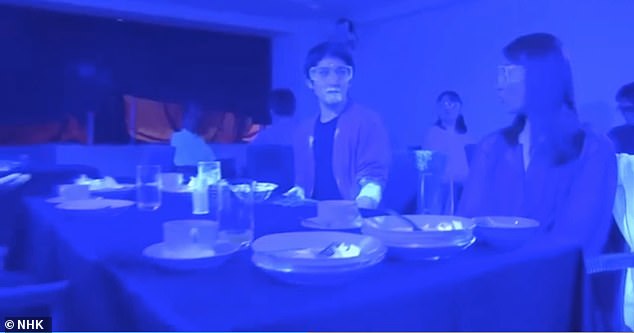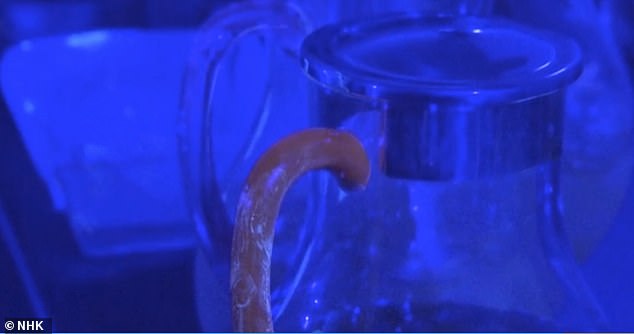OMG! Terrifying Video Shows How Quickly Coronavirus Can Spread In A Restaurant (Watch)
Posted by Samuel on Thu 14th May, 2020 - tori.ng
Ten participants were used in the study and one person was designated as an infected person. Fluorescent paint was applied to the palm of the infected person's hand before the meal
A Japanese 'black light' experiment proved how quickly coronavirus can spread in restaurants and other communal spaces by using fluorescent paint as a mock virus to 'infect' diners.
The experiment, conducted by TV channel NHK, used paint to represent a 'virus' to show how easily infections can spread through communal facilities.
One of the ten participants was chosen to be 'infected' and had the fluorescent paint applied to his palms.
NHK's video footage then shows the participants enjoying a 30-minute buffet before a blue light is turned on, revealing how far the 'virus' had spread.
The blue light proved how easily a virus can spread on communal items, as the paint had spread across the entire restaurant from one individual.
The paint was found on other people's hands and tableware across the entire room, proving how fast and easily a virus can move from person to person.
People looked shocked when the light as turned on as they realised the paint had spread to their hands and onto their plates without their knowledge.

By the end of the 30 minute buffet, the single 'infected' person had spread the 'virus' to the entire restaurant through the drinks container handle and the tongs separating the food
The paint was applied to the man's palms to show how a cough can spread to surfaces, proving the importance of hand-washing amid the coronavirus pandemic.
The 'infected' man even had the paint on his clothes and around his mouth, showing the importance of hand washing amid the coronavirus pandemic.
It was confirmed that the paint spread to the hands of all the participants, and that three had the paint on their face.
The 'virus' spread through communal items, including the lid of the container holding the food, the tongs separating the food and the handle of the drinks container.
Professor Hiroyuki Kunishima of St. Marianna University School of Medicine said to NHK: 'A place where the unspecified majority can easily touch is called a high-touch surface, which is harbouring danger.'
Japan have reported 16,079 cases of coronavirus and 687 deaths, according to the ministry of health.
The experiment highlighted how a number of 'super-spreaders' during the coronavirus pandemic, have passed the virus to people they have come into contact with.
***
Source: Daily Mail UK












































